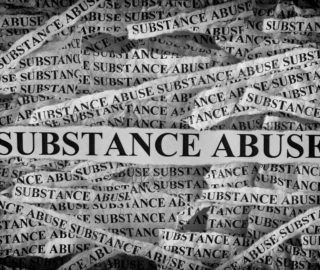Addiction is a disease that is not well understood in the medical community. While there has been scientific progress in this realm of medical science, there is still a massive social stigma regarding abuse and addiction. When people who are addicted or who are related to an addict are ashamed, they won’t speak up, reach out for help, or talk about how the illness is impacting the family. When addiction is kept in the dark, myths and misconceptions will abound and further muddy everyone’s understanding of the disorder.
Myths of Substance Abuse & Treatment


Treatment
The Most Common Myths About Substance Abuse and Treatment
How did the myths surrounding addiction get started?
Misconceptions about addiction have been in circulation for centuries. It wasn’t until recently that the medical and scientific communities became aware of how the brain impacts behavior, emotions, and addiction. In fact, the knowledge that addiction originates in complex brain and biological processes is a new development. As such, there are many common myths related to addiction, and these myths have prevented people from getting the help they need. Misconceptions have also made it harder for families to reach out for support. Also, myths surrounding specific drugs and how they affect people can make it more likely for someone to try the drug. For example, thinking that smoking marijuana is safer than smoking tobacco.
-
Myth #1: Addiction is a problem of willpower.
This is probably one of the most damaging myths about drug or alcohol addiction. Becoming addicted to drugs is not a problem of willpower or a sign of weakness. Many factors influence a person’s risk factors for addiction, and willpower is not one of them. Addiction often runs in families, and genetics are often to blame. Social factors and untreated mental health issues are all known risk factors for addiction.
Also, once a person starts taking a substance, complex physiological processes can take over their ability to make sound decisions. Drugs interact with the brain on a neurological level, and even if someone wants to stop taking drugs, they will experience painful and sometimes deadly withdrawal symptoms that can make cessation incredibly difficult without outside intervention.
-
Myth #2: Relapse is a sign that treatment has been a failure.
Addiction is a disease, and it is comparable to physical ailments like diabetes or heart disease. Studies have found that the relapse rates for drug addiction are almost identical to relapse rates for common physical problems, like hypertension and arthritis. Although addiction cannot be cured like many chronic illnesses, it can be successfully managed and treated with ongoing assistance from doctors and therapists. A person with a condition like diabetes will need to attend ongoing doctor’s appointments, and so will a person with an addiction. Relapse in drug addiction and with other chronic health conditions is a part of the journey to getting better and successfully managing health issues.
-
Myth #3: Smoking marijuana is safer than smoking cigarettes.
Research has found that smoking marijuana has the same health risks as smoking tobacco and that there is not much difference regarding the damage both substances can do to the lungs.
-
Myth #4: Marijuana is not addictive.
Many teens will try marijuana as a way to experiment with drugs, “look cool,” relieve stress or to alleviate boredom. The myth that marijuana is not addictive can lull someone into a false sense of security, and increase the rate of teens trying the drug. Unfortunately, pot is an addictive substance, and one in eleven people who try marijuana will form an addiction.
-
Myth #5: Prescription drugs are not harmful because doctors prescribe them.
Unfortunately, prescription drugs can be incredibly harmful if a person takes them without a prescription. Even taking a drug as prescribed can have potentially devastating side effects. Just because a drug is legal and prescribed by a physician does not mean it is 100% safe. Prescription opioids are responsible for up to 30% of all overdose deaths in the U.S.
-
Myth #6: Experimenting with alcohol isn’t a big deal since alcohol is legal.
Four in ten people who drink alcohol before age fifteen will become alcoholics. Just because alcohol is legal does not mean it is safe. Problem drinking in students accounts for a high number of physical assaults, rape, and poor academic performance among high school and college students.
-
Myth #7: I can quickly sober up from drinking if I have to.
It takes about two hours for the adult body to fully process one drink, depending on their weight, age, physical health, and gender. Drinking coffee, taking a cold shower, or eating will not enable the liver to process alcohol any more quickly than it usually could. This is a dangerous myth that contributes to drunk driving rates. Every day, 29 people die as a result of drunk driving crashes.
-
Myth #8: Drug or alcohol addiction is hopeless.
Drug addiction is a chronic illness, and as such, patients will need ongoing care like they would for any other chronic disease. It is a myth that drug or alcohol addiction cannot be effectively managed or treated. Studies on the effectiveness of addiction treatment have found that people who receive detox, rehab, and ongoing therapy can achieve and maintain sobriety. Treatment enables patients to obtain control over the physiological and behavioral processes involved in addiction.
Also, people who’ve struggled with addiction often enter rehab with gaps in employment and other financial hardships. They may also be homeless, facing eviction, or locked into an abusive relationship. Still, a significant percentage of people who enter rehab will also have a co-occurring illness that may have never been addressed and treated. Rehab gives patients access to a team of experienced medical professionals and therapists who can manage the multitude of complex issues that addiction patients often face.
Are you or a loved one struggling with addiction to drugs or alcohol? Addiction is not a hopeless condition, and there is help available. The representatives at Windward Way recovery center are standing by to answer your questions about rehab, detox, and drug addiction counseling. Please contact Windward Way today and get help for addiction and abuse.




